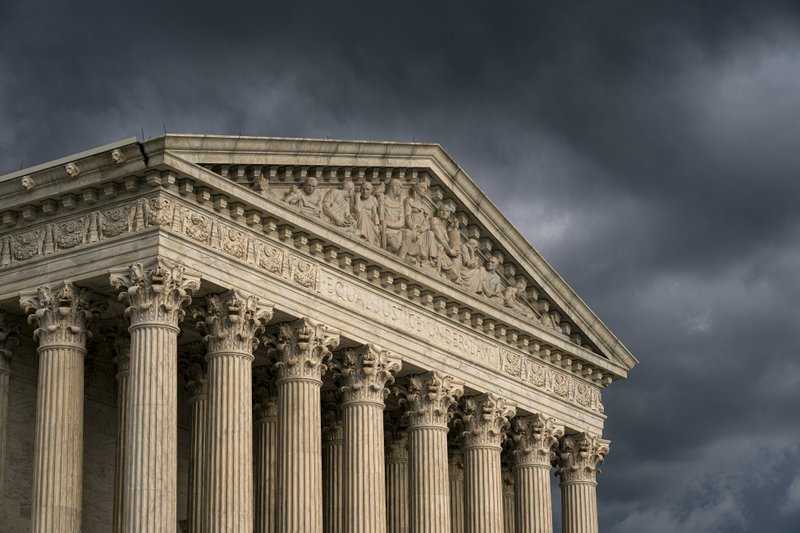The Supreme Court sidestepped a major decision on gun rights Monday in a dispute over New York City’s former ban on transporting guns.
The justices threw out a challenge from gun rights groups, including the National Rifle Association’s New York affiliate. The court ruled that the city’s move to ease restrictions on taking licensed, locked and unloaded guns outside the city limits, coupled with a change in state law to prevent New York from reviving the ban, left the court with nothing to decide. The court asked a lower court to consider whether the city’s new rules still pose problems for gun owners.
The anti-climactic end to the Supreme Court case is a disappointment to gun rights advocates and relief to gun control groups who thought a conservative Supreme Court majority fortified by two appointees of President Donald Trump, Justices Neil Gorsuch and Brett Kavanaugh, might use the case to expand on landmark decisions from a decade ago that established a right under the Second Amendment to keep a gun at home for self-defense.
But other guns cases remain in the high court’s pipeline, including whether gun owners have a constitutional to carry their weapons in public. The justices could decide to hear one or more of those next term.
Although the opinion was unsigned, the court split 6-3 over the outcome.
Gorsuch joined Justices Samuel Alito and Clarence Thomas in dissenting from the dismissal. Kavanaugh wrote a brief concurring opinion in which he agreed with the result, but also said the court should take up another guns case soon.
“This case is not moot. The City violated petitioners’ Second Amendment right, and we should so hold,” Alito wrote for the dissenters.
Lower courts upheld the regulation, but the Supreme Court’s decision early in 2019 to step into the case signaled a revived interest in gun rights from a court with two new justices.
Officials at both the city and state level scrambled to find a way to remove the case from the justices’ grasp. Not only did the city change its regulation to allow licensed gun owners to transport their weapons to locations outside New York’s five boroughs, but the state enacted a law barring cities from imposing the challenged restrictions.
Those moves failed to get the court to dismiss the case before arguments in December, and gun control advocates worried that the court might adopt the reasoning Kavanaugh used in a 2011 opinion in his former job as a Court of Appeals judge. There, he wrote, gun laws “that are not longstanding or sufficiently rooted in text, history, and tradition are not consistent with the Second Amendment individual right.”
Restrictions on who can carry guns in public, limits on large-capacity ammunition magazines and perhaps even restrictions on gun ownership by convicted criminals, including people convicted of domestic violence, might be imperiled, gun control groups said.
Those groups breathed a sigh of relief Monday, while acknowledging that the legal fight would continue. “The Supreme Court declined the invitation to adopt the NRA’s extreme and dangerous interpretation of the Second Amendment,” said Eric Tirschwell, managing director of Everytown Law, the legal arm of former presidential candidate Mike Bloomberg’s Everytown for Gun Safety Support Fund.
But Jonathan Lowy, chief counsel and vice president of the Brady gun control group’s legal action project, said, “We know that this fight is not over. The gun lobby will continue to challenge gun laws across the country.”
Ilya Shapiro of the libertarian Cato Institute said the city “effectively hoodwinked the Supreme Court” by belatedly changing its rules to avoid the justices’ review. Shapiro called it “a moral imperative” for the court to take up a new case to explain its views on gun rights.
Kavanaugh made essentially the same point. He joined Alito in voicing concern that lower federal courts are not properly applying the court’s two big gun rights decisions.
“The Court should address that issue soon, perhaps in one of the several Second Amendment cases” pending at the Supreme Court, he wrote.
The court put off acting on appeals from gun owners in Massachusetts and New Jersey who claim the Constitution gives them the right to carry their weapons in public in challenges to strict licensing requirements.
(AP)











